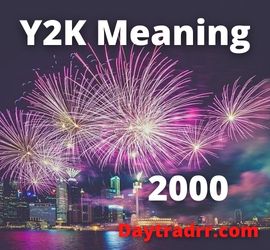What Is a Purchase Money Security Interest (PMSI)?
 A Purchase Money Security Interest (PMSI) is a security agreement where a lender loans purchase money for certain goods which are then pledged to the lender as collateral for the loan. In other words, the lender uses the goods purchased as collateral to secures the repayment of the debt owed.
A Purchase Money Security Interest (PMSI) is a security agreement where a lender loans purchase money for certain goods which are then pledged to the lender as collateral for the loan. In other words, the lender uses the goods purchased as collateral to secures the repayment of the debt owed.
Purchase money security interest (PMSI) is a legal agreement that allows a lender to either repossess property financed with its loan or to demand repayment in cash if the borrower fails to pay. When properly executed, it gives the lender priority over claims made by other creditors. However, the procedures permitting enforcement of a PMSI are strict and outlined in the Uniform Commercial Code.
According to UCC Article 9, a purchase money security interest (PMSI) is a special type of security interest. It enables lenders who finance a debtor’s acquisition of goods to acquire a first priority security interest in the collateral. Even if another creditor holds an earlier perfected security interest, the PMSI secured party would take priority. A PMSI is often used by a seller of goods. It allows them to secure the prices and advance the funds that enable the debtor to acquire the goods. However, the super-priority for the PMSI secured party is limited to the good that they enabled the debtor to acquire.
Lenders have several options to protect their financial interests if debtors default on their financial obligations. Financial companies may pursue consumers who stop making payments on their debts in a number of ways. For instance, by sending them to collections, taking legal action, or enforcing liens, Taking out a purchase money security interest is effective, but a lesser-known option. This method gives a specific lender a right to property or its full cash value before any other creditor. Specifically, when that lender’s money was used to finance the purchase. Some commercial lenders and credit card issuers use PMSI. Also, retailers that offer financing options. It effectively gives them collateral to seize if a borrower defaults on payment for a large purchase. It also is used in business-to-business (B2B) transactions. The option of obtaining a PMSI encourages companies to increase sales by directly financing new equipment or inventory purchases.
A purchase money security interest is valid in most jurisdictions. Of course, provided the buyer agrees to it in writing and the lender files a financing statement. The procedure is outlined in Article 9 of the Uniform Commercial Code (UCC). The UCC is the standardized business code of conduct adopted by most states. These regulations were adopted to make it easier for corporations to conduct business with others across state lines. Article 9 is the section of the code that outlines the treatment of secured transactions. This includes how security interests are created and enforced. The protection provided by a PMSI is one reason for the growth of point of sale financing. This is where a retailer offers buyers direct financing for major purchases. If the purchaser defaults, the retailer may repossess the specific items purchased. Further, it may do so before any other creditors are satisfied.
Obtaining a Purchase Money Security Interest
Stated simply, a PMSI is a security interest in goods. It secures the repayment of the debt owed in connection with the purchase price of the goods.
- Have a PMSI form readily available – First, a seller needs to prepare a form purchase money security agreement to be signed by its customers. If your company does not already have such a form, basic form agreements are readily available and are generally sufficient to protect a seller’s interests. In larger transactions, however, it would be best to have a more detailed security agreement prepared by experienced counsel to cover all the elements needed to protect you.
- Buyer must sign PMSI agreement – To ensure that the buyer is bound, the signed agreement must expressly confirm the existence of the PMSI and grant a security interest in the goods sold.
- Buyer authorizes filing to perfect the interest – The buyer also must authorize you to file a financing statement to perfect the security interest in the goods themselves and/or in their proceeds.
- Ensure the legal name of the debtor is used – Finally, you must be careful to confirm that the name of the purchaser against which you obtain the PMSI is the legal name of the “debtor” as defined in Article 9 of the UCC. (Source: sussmanshank.com)
How to Perfect a Purchase Money Security Interest
When comparing a UCC record filed to perfect a PMSI with any other UCC record, there are a few things to understand:
- Forms – No special form is required
- Statutory requirements – No statutory requirement to indicate the financing statement is a PMSI
- Collateral – General collateral sufficiency rules apply (global)
Perfecting a PMSI differs depending on the type of goods involved in this transaction, such as equipment, fixtures, inventory, and livestock. Lenders must be familiar with the differences and fully and timely comply with the requirements to secure the priority of a PMSI lien. The requirement for the proper and timely perfection of a PMSI in goods other than inventory, livestock, and fixtures, such as equipment and machinery is as follows:
… if the purchase-money security interest is perfected when the debtor receives possession of the collateral or within 20 days thereafter. (U.C.C. § 9-324(a).)
The securing party must file the financial statement within the twenty-day period. Only then is it deemed to have been perfected before or coinciding with the delivery of the collateral to the debtor. This establishes priority for the securing party over any blanket lender with an after-acquired provision. This rule also provides a complete defense to any attack by a bankruptcy trustee under a preference claim. This is in the event of a bankruptcy filing by the debtor within 90 days of the delivery of the collateral. (Source: equipomentfa.com)
There are some exceptions to the 20-day rule. Specifically, the following types of PMSIs do not necessarily have to be perfected within 20 days:
- PMSI in inventory
- Consignments
- Livestock PMSI (including domestic farm animals and aquaculture)
- Non-uniform state amendments
- Consumer goods
Purchase Money Security Interest Procedures
The rules regarding a lender’s use of a PMSI are strict. These guidelines are outlined in the UCC. The lender must be able to prove that the goods seized were owned by the lender and were purchased using the lender’s money. This is why lenders routinely pay vendors for goods directly before arranging for their sale on credit to a buyer. This establishes the lender’s ownership of the goods in question.
For example, consider a consumer arranging to buy a custom-made table on credit from a furniture retailer. The retailer would put through an order with the manufacturer and pay for the sofa before finalizing the financing agreement. In this case, the retailer is the owner selling the sofa—not the manufacturer. In legal terms, the retailer has a security interest in the property just sold and can obtain and enforce a PMSI.
For the same reason, if the buyer puts down a security deposit on the sofa, the retailer may insist that the buyer pays for it in full before the security deposit is returned. This establishes the full dollar value that the lender is entitled to demand in case of default. Court rulings regarding PMSI claims have established the lender’s right to demand reimbursement of other costs related to the purchase such as freight charges and sales taxes. (Source: investopedia.com)
PMSI Example
For example, imagine you are the first secured party (SP1) that filed a UCC on all assets in default in 2015. Then a year later, another secured party filed a UCC on equipment. So then another year later, another secured party then filed a PMSI UCC on a Cosmic Turret Lathe, model XLA5.
In this case, secured party 3 has the highest priority. This is because they filed on a specific machine, the Cosmic Turret Lathe. It means that their debt will be paid first. Secured party 1 (you), filed in 2015. Therefore, you would have the next highest priority for all other assets, including the remaining equipment. SP2 is third in line.
The PMSI has a higher priority than you. But, you have a higher priority than SP2 because your older assets claim takes precedence.
Up Next: What Is an Open-End Mortgage?
 An open-end mortgage allows individuals to borrow additional money on the same loan at a later date without having to take out new financing or credit. It remains open and it permits the lender to make advances on the loan that are secured by the original mortgage.
An open-end mortgage allows individuals to borrow additional money on the same loan at a later date without having to take out new financing or credit. It remains open and it permits the lender to make advances on the loan that are secured by the original mortgage.
In other words, an open-end mortgage allows the borrower to increase the amount of the mortgage principal outstanding at a later time. The borrower can go back to the lender and borrow more money secured by the same loan. There is usually a set dollar limit on the additional amount that can be borrowed.
So, the total indebtedness does not exceed the maximum principal amount identified in the original mortgage document. Nevertheless, it still acts as a lien on the property as described in the mortgage.




